Australians are being asked to open their hearts – to be generous – to vote ‘Yes’ to something greater than they can imagine. For imagine they shall, as the detail in the Voice is not there.
Instead, we can look elsewhere for guidance on where matters ‘Indigenous’ are heading.
The nation’s eyes should settle on Western Victoria.
It is there that an Aboriginal Agreement between the Victorian government and a Horsham-based Land Council was quietly signed in October 2022.
The Barengi Gadjin Land Council (BGLC) is managing the deal on behalf of five local groups: the Wotjobaluk, Jaadwa, Jadawadjali, Wergaia, and Juragulk Peoples (WJJWJ).
It is an ‘expansion’ of a Recognition and Settlement Agreement struck in 2005 when Native Title was proclaimed for the 36,000 km2 area.
I make this point only to be clear that the WJJWJ Aboriginal Agreement has nothing to do with Treaty, Heritage Agreements, the Voice, or other.
The WJJWJ Agreement states it is founded on principles of self-determination.
It is an interesting view given it seems the state and local ratepayers will pay for nearly everything to do with the Agreement: every meeting, every consultation, and every guidance.
The Agreement wants exemption from land tax and stamp duty along with ‘revenue sharing between local councils’ and traditional owner entities.
Under the deal, Traditional Owner Rights include that they can take natural resources ‘on or depending on the land’. It is unclear what that immediately means. Ultimately, the WJJWJ want ‘timber, gold, silver, metals, and mineral operations’ included in the ‘definition of “natural resources”’.
Possibly the greatest claim in the Agreement is that the state ‘acknowledges the aspirations’ of the WJJWJ to take sole control of water and waterways including access, extraction, and environmental flows.
For a region known for its broad acre cropping, farmers must be holding their collective breath. One of the 10 councils consumed in the Agreement is Mildura on the banks of the Murray. The mighty Wimmera River flows through Horsham, and this Agreement compels the regional authorities to understand that the WJJWJ have a ‘special relationship’ with the river. Watch that space.
The Agreement also speaks of the ‘aspiration’ of the WJJWJ to have ‘greater control and influence over all levels of biodiversity and decision making’ including for non-indigenous species. The state indicates it is happy to change laws to enable this.
Five parcels of public land will be granted to the WJJWJ. They will also jointly manage all current and new parks and reserves in the Agreement Area. 12 parks in the area will be granted Aboriginal Title.
The government commits, if requested, to provide support for WJJWJ applications for exemption from local government rates and any application for government funding for land management or similar purposes. What council or group wouldn’t want that?
Yet the state’s funding formula presented in the Agreement is a blur of redactions.
The Victorian taxpayers do not know what they have already given for a one-off payment – they don’t know how much has been put into an Aboriginal Trust. They do not know how much the BGLC will get for the next four years, and additional amounts for business development and natural resource matters over that time. An unknown amount will be paid every year after that in perpetuity.
The state will pay for any employees required for the co-management of parks and reserves.
It is the impact on local government – the ten councils involved – where much of this agreement plays out – and pays out.
Of note is the consistent use of the words recommend, preferential, acknowledge, commit, and so on – indicating this agreement is akin to an ambit claim: stamped by the state but left for local councils to make good.
As the Prime Minister himself said about the Voice, it would be a brave government that ignored the ‘advice’.
If the strategy progresses as envisioned, it would change democratic norms and change fundamental basics such as who controls water.
Firstly, the Councils of Mildura, West Wimmera, Northern Grampians, Southern Grampians, Buloke, Hindmarsh, Pyrenees, Yarriambiak, Horsham, and Ararat would have to acknowledge the WJJWJ as the Traditional Owners and pay them to do Welcome to Countries. Staff would also undergo cultural education.
New local roads, bridges, and spaces would be given WJJWJ names, and current names deemed offensive to the WJJWJ will be replaced. The Agreement clearly states that councils needn’t bother coming up with ‘traditional names’ because the groups ‘will decline’ the requests.
Signage would be erected in public areas to indicate who the traditional owners are. The Aboriginal flag would need to be flown on all council buildings and plaques attached stating the traditional owners of the land.
Despite paying for these things, ratepayers would be left with no doubt whose land it is, and the WJJWJ, who won’t pay rates, will hold both serious and symbolic sway.
The ten councils would be forced to meet regularly with the land council for planning days.
On top of Reconciliation Action Plans, Aboriginal rights, aspirations, and perspectives would be part of Council Plans. The WJJWJ would have ‘equal footing’. What will this mean for democracy when 50 per cent of the influence is unelected? What will it mean in VCAT or in courts of law? Will they become courts of lore?
The WJJWJ would need consulting and partnering on roads and roadsides – including new roads. Firewood and fire management plans would also require their input. As would health plans, mental health plans, and early childhood plans.
And while they won’t have to pay rates, the WJJWJ would also be consulted over rating strategies.
Councils would be required to give the WJJWJ preferential employment and procurement for any ‘goods and services’ which they can provide. The council must tell the groups when grants are available and they must preferentially source biodiversity and carbon credits from them.
The council would need to provide a framework for the WJJWJ to be involved in the management of council land. One assumes this includes libraries, pools, and sporting grounds.
A process would be developed for the WJJWJ to have a say over planning permit applications and amendments that affect them. There is no definition around what that means.
And further – the councils would be required to ‘devote a portion of local government revenue’ towards implementing this strategy.
Not only were they blindly forced into this deal – the councils must pay for it – and all ‘consultation’ would most likely be charged by the hour. It’s equivalent to a never-ending open cheque book from councils so cash-strapped they can’t even fix potholes.
In short, the deal would potentially give the WJJWJ control over water, roads, plants, biodiversity, planning, permits, jobs, contracts, health, naming rights, fire plans, public spaces, and parks.
The state has agreed to find more land to hand over to them.
What we are witnessing is an unelected group – based only upon their racial heritage – layering a communal dogma over the top of a democracy in which they are already embraced.
What if Indigenous representatives also sit as councillors? They will not only get their council vote, but their ‘equal footing’ vote as part of the WJJWJ.
Is this sounding familiar to another debate happening nationally?
It also begs the question: what does self-determination mean? Is it about the Land Councils? Is it about each individual? Is it about a state-sponsored separate Indigenous government?
The Agreement makes it very clear that the WJJWJ haven’t ceded sovereignty.
While much of it is about ‘aspiration’, ‘exasperation’ is what we may expect for those councils who must turn this document into reality.
It will ‘hand back’ rights and pay for things that never existed prior to European settlement. For example, why should a non-medical group of people have equal say on a health plan or where a hospital should go?
It is not by chance that these deals are designed to hit democracy at its weakest link – local government.
Many ratepayers would struggle to name their local councillors, and yet are rarely surprised when that council is so dysfunctional that it is placed into Administration or saddled with Municipal Monitors.
Some of the 10 councils within the WJJWJ deal have recently experienced this sort of trouble.
Without choice, these councils now find themselves in the fast lane of the Indigenous superhighway – facing a Land Council highly geared in deal-making and indigenous politics.
Treaty is coming for Victoria. The Voice may come. ‘WJJWJ deals’ will arrive elsewhere in the state too.
We should remember the days when democracy meant something.
Bev McArthur is the Liberal member for Western Victoria Region and the shadow parliamentary secretary for roads and road safety
Got something to add? Join the discussion and comment below.
Get 10 issues for just $10
Subscribe to The Spectator Australia today for the next 10 magazine issues, plus full online access, for just $10.

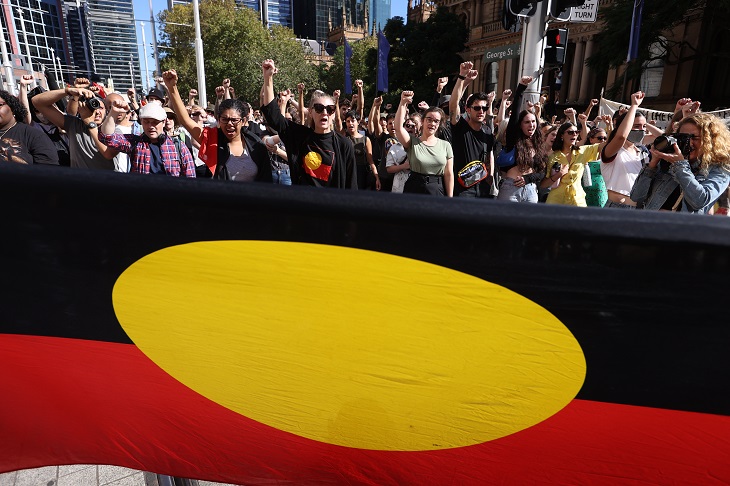
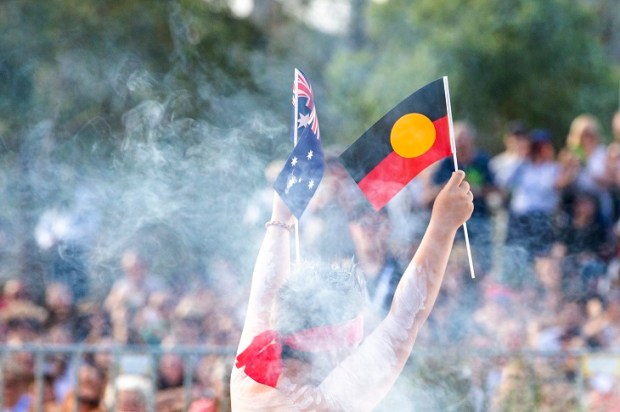
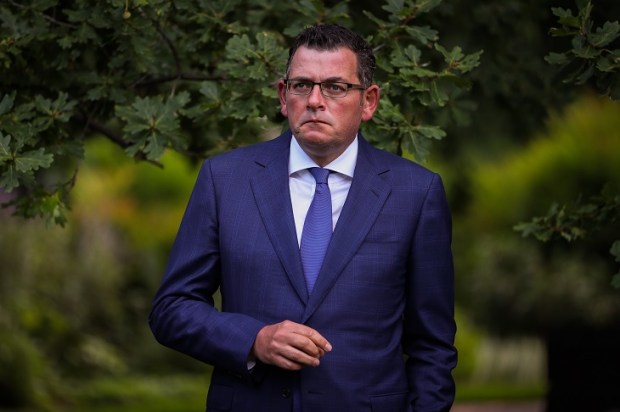
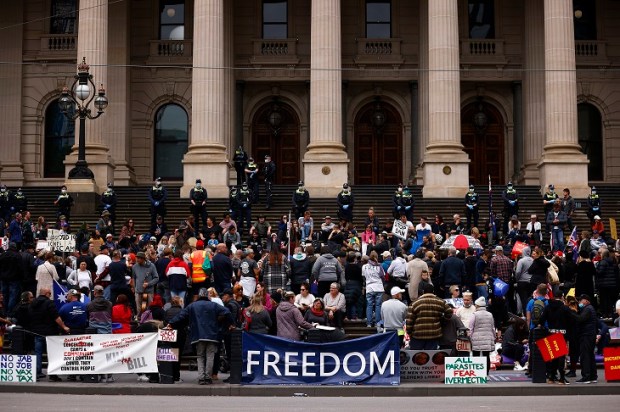
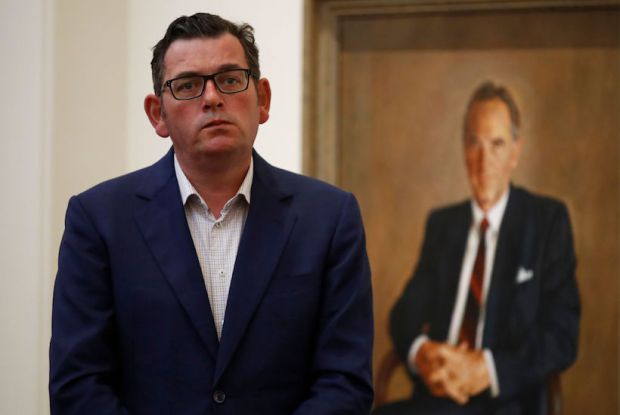
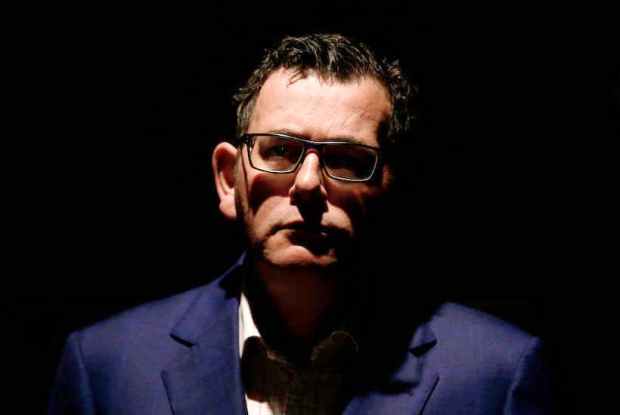



















Comments
Don't miss out
Join the conversation with other Spectator Australia readers. Subscribe to leave a comment.
SUBSCRIBEAlready a subscriber? Log in